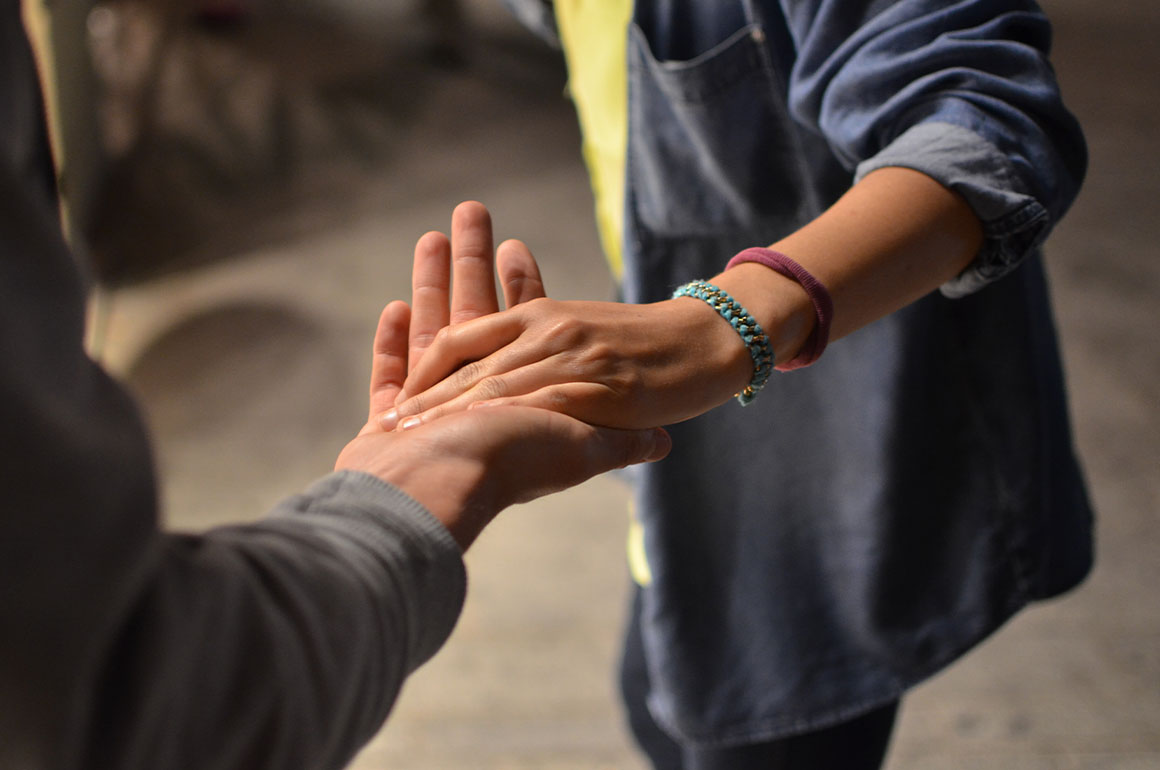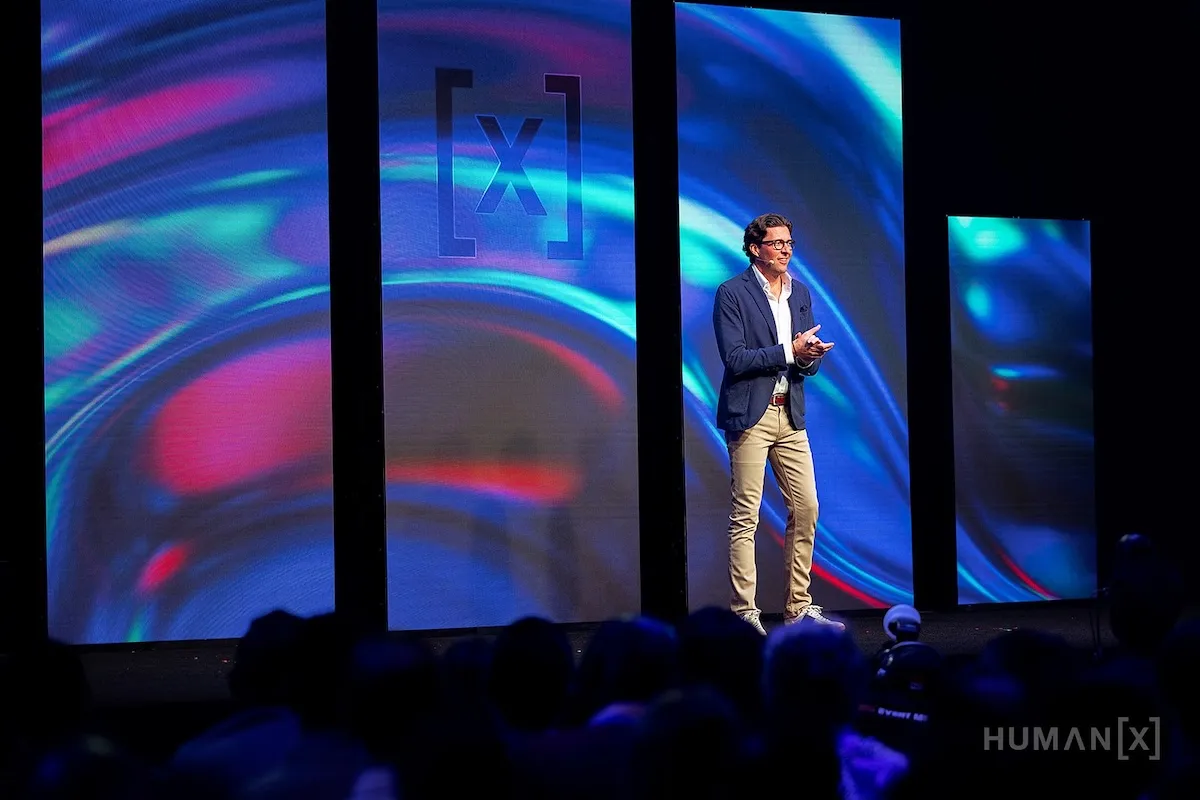How the Event Industry Is Meeting a Growing Mental Health Crisis

Skift Take
Even before the pandemic, event planning was considered one of the world’s most stressful careers. Now with Covid having dealt an especially deep and long-lasting blow to the meetings industry, wellness experts are concerned that the mental health of event professionals has reached a crisis stage.
Among them is Rachael Riggs, wellbeing leader for Maritz Global Events and the author of Maritz Global Events Wellbeing ebook. Last year, while serving as president of PCMA’s Midwest Chapter, presiding over numerous virtual events for planner members gave her a “front-row seat on a level of stress that I’d never seen before.”
“It came out a few years ago that meeting planners were in the top five of stressful industries, but I’d say we’ve moved up into the top three,” Riggs told EventMB, citing a 2019 careerCast survey. “We’ve always had stress, but suddenly people were dealing with stuff they never had to before. One member said she felt like she was drinking from a fire hose.”
Veteran planner Vicki Johnson, principal at Vicki Johnson & Associates, has a similar take. Johnson recently shared her insight when she co-led a recent panel discussion on mental health, So...How Are You Really?, for the Reston Herndon Meeting Planners, an organization in metro Washington, D.C..
“One can only imagine what the cancellation of 250,000 events, countless layoffs and pivoting to virtual and hybrid meetings have done to magnify already high stress levels,” she said. “The disruptions and changes planners have had to adjust to, with no sense of when or if things will return to where they were, leaves those of us [in the industry], who often tend to be control freaks, with a total inability to control anything.”
Lee Papa, a wellness and meditation trainer specializing in the meetings industry, repeated the same story. She even described many of her clients as being in a state of emotional turmoil.
“Nearly every day I am hearing from industry professionals who say they are feeling like they have PTSD,” she said. “One lamented that the rescheduling of 40 events, multiple times, is becoming unbearable. Our industry is weary.”
Mental Health Resources for Event Professionals
So where can stressed-out event professionals find relief? While mental health resources specifically designed for meeting planners are few, there are signs that the industry is taking steps to provide coping mechanisms and other professional guidance.
EVENTWELL
Designed for the meetings industry, EventWell is a U.K.-based organization founded in 2017 to provide mental health and well-being services for event professionals. Among its services are financial assistance and training for the development and implementation of well-being services at workplaces and events. It also provides certification in Mental Health First Aid, a program that teaches how to recognize and assist people experiencing a mental crisis.
In a recent survey, EventWell reported that one in three event professionals experience poor mental health in the form of stress, anxiety, depression and burn-out on a yearly basis. It also found that 42 percent of event professionals have changed jobs due to stress during their careers, and that younger event professionals are more likely to experience stress than older ones.
Riggs, who is president of the North American branch of EventWell, said the organization is filling a long underserved need in the meetings industry.
“Guest well-being is at the heart of the event experience, but we also need to focus on the meeting planners themselves,” Riggs said.
INSIGHTS FROM THE EVENTMINDED SESSIONS
Mental health strategies for event professionals were the focus of EventMinded, a recent online summit hosted by the virtual event platform Hopin. While many industry associations and organizations have held webinars on mental health, Hopin may be the first tech provider to do so — and the session brought together a wide spectrum of voices on the topic.
EventMinded presenters included wellbeing leader Rachael Riggs of Maritz Global Events; organizational psychologist Adam Grant; Dr. Seth Gillihan, head of therapy for Bloom; Dr. Myra Alman, head of clinical care for Modern Health; Philip Chen, senior director of event strategy and messaging for Salesforce; and Kacy Ashley, senior communications and event manager for Pinterest. In addition, Simone Biles shared her insights on coping with the high-octane pressure of being a famous Olympic gymnast.
A Growing Need for Industry Support
Kicking off the program, Riggs shared her own recent experiences, which included being furloughed from her job shortly after the pandemic started and the subsequent opportunity to write Resources for Workforce and Wellness Guide for the Events Industry Council. She noted that mental health is a global problem for people in all walks of life, but that funding for solutions is woefully inadequate.
“We have to stop asking if we should invest in mental well-being and start asking what the consequences will be if we don't,” she said.
Riggs also recommended four organizations: Search Foundation, Above and Beyond Foundation, Meetings Industry Fund and EventWell, where event professionals under stress from financial difficulties can apply for monetary assistance.
Tips from an Organizational Psychologist
Adam Grant, author of the New York Times best-seller Think Again, told the audience that many people, himself included, have been dealing with a sense of stagnation and languishment during the pandemic.
“Find someone else you know who is languishing,” he advised. “Give them advice on overcoming it. That will be advice you should follow too.”
After months of isolation, Grant said he found himself feeling anxious and awkward about once again participating in social situations.
“It’s important to remember that others are feeling awkward too,” he said. “We should expect to not feel normal.”
Breathing Exercises and Cognitive Behavioral Therapy (CBT)
While they may not directly address the issues that are keeping event planners up at night, several well-established calming techniques can go a long way to reducing stress levels.
During the EventMinded session, Dr. Seth Gillihan led the audience through a series of breathing exercises, emphasizing the power of deep breathing as a tool for managing stress and anxiety. He also underscored the importance of addressing anxiety by not succumbing to feelings of pessimism or inadequacy when planning events.
“If the thought isn’t accurate, let’s change it to a more realistic one,” Gillihan said, explaining a well-recognized cognitive behavioral therapy technique for overcoming negative thoughts. He then suggested that event planners try repeating the following mantra: “This event may turn out really well in the end. Even if problems come up, I have the resources to handle them.” He added, “You can be your own therapist.”
The Importance of Self-Care
Event managers Philip Chen and Kacy Ashley also shared some of the coping strategies that helped to buoy them over the past year and a half.
For Ashley, recent months have taught her to take a moment or two to stay calm, even while being “thrown a curve ball” at work. She has also learned to give more priority to her personal life.
“I live and breathe events — and that’s OK to do once in a while,” she said. “For the first ten years in the industry, I didn’t prioritize my personal life. I put it on hold. I realized I needed to create space for myself. You need to do this, no matter how much you love events. Sometimes you need to reset, take a day off.”
Chen also realized the importance of taking more time for himself. At one point during the pandemic, he took a leave of absence from work, realizing it was the right thing for him and his family.
“I saw the events industry as stressful and hard to control, but I realized I can control who I am and how I react to it,” he said, adding that he feels fortunate that Salesforce provides well-being days, wellness coaches, and other services for employees.
How Workplaces and Support Systems Can Help
There is a growing need for employers to provide adequate wellbeing services for their staff, not just to keep them healthy — but also to keep them from moving on to companies with better support systems in place.
Noting that not all companies are addressing mental health issues, Dr. Altman commented that an increasing number of people are gravitating toward workplaces that do support the mental and physical health of employees.
“The more that this happens, the more that managers will take mental health seriously,” she said. “This is not just a nice-to-have option, but an important one for businesses to be successful.”
Simone Biles shared insights about her own well-publicized mental struggle to compete under intense pressure. She spoke about the benefits of talking things over with a sports psychologist, following small rituals, and gaining support from family.
“Sometimes you have to ask for help and that’s OK,” she said. “Your mental game has to be on par with your physical game.”
REACHING OUT
Other active voices within the industry are sharing a similar message of support and acknowledgement.
Vicki Johnson shared some key steps that event managers can take to protect the mental well-being of themselves and others. The first is acknowledging that you need help. Broad mood swings, feelings of sadness or emptiness, trouble with memory or making decisions, fatigue and weight fluctuations — these are all warning signs that need to be taken seriously, according to Johnson.
“Reach out to get support,” she said. “Reach out to friends, family and mental health professionals, but also to your employer. Sharing what you are experiencing may ensure that other individuals within your organization will have the support needed as well. Become an advocate for your organization to ensure there is a system in place to ensure that good mental health is a priority.”
Dr. Kim Bercovitz (aka Dr. Kim), a health behavior scientist, wellness coach and founder of Byte-Size Wellness Academy, provided further insights. She observed that meeting planners, while good at taking care of others, are oftentimes not good at taking care of themselves. She urges event professionals to practice self-care, including meditation, exercise, healthy eating, sleep hygiene, spirituality and a regular practice of setting aside time for “being in the moment” instead of multi-tasking.
“You have to put your own oxygen mask on first,” she added.
IN CONCLUSION
The pandemic and its resulting avalanche of meeting cancellations, job losses and other challenges has made event management more stressful than ever. While the well-being of attendees has become a bigger focus at meetings in recent years, the same attention needs to be given to those who make those events happen. Event managers need to address their own mental health challenges, and the meetings industry needs to help them do it.




